#jenny griffith
Text
Hi
I just started watching Suits and I’m not understanding the love for the character Jenny, I know Trevor was shitty, but I don’t like how Jenny was dating him. While still having feelings for Mike. You could see in like episode one of they have like an attraction to each other. I’m sorry, but that is so icky. Like what if Trevor wasn’t a horrible person? Then you’d have no justification for a girl who gets with her ex boyfriend best friend.
Idk I just can’t get behind it.
8 notes
·
View notes
Text
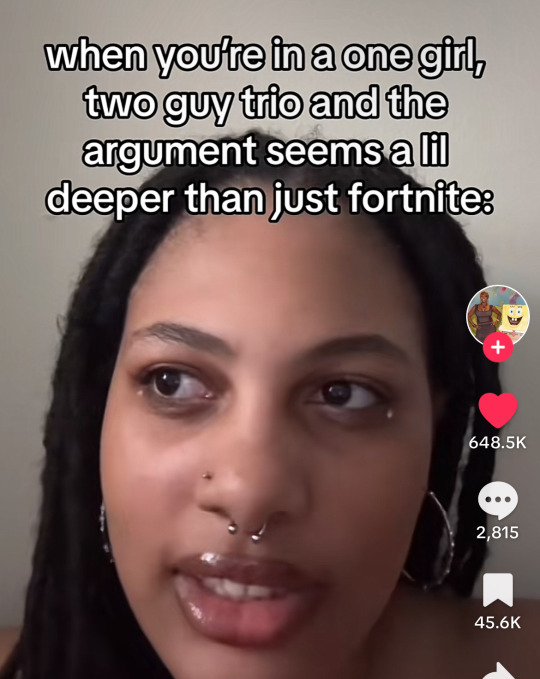
this might be jenny griffith
3 notes
·
View notes
Text


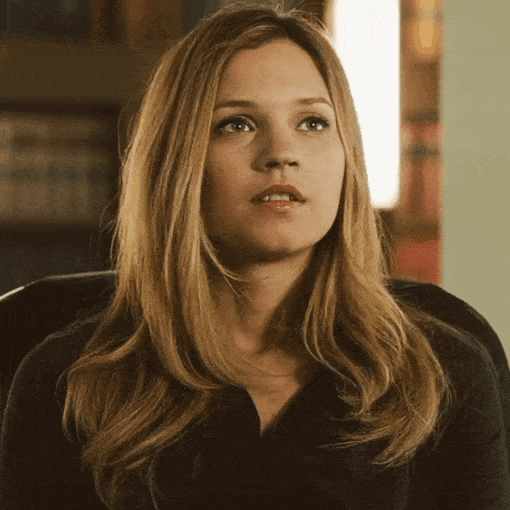
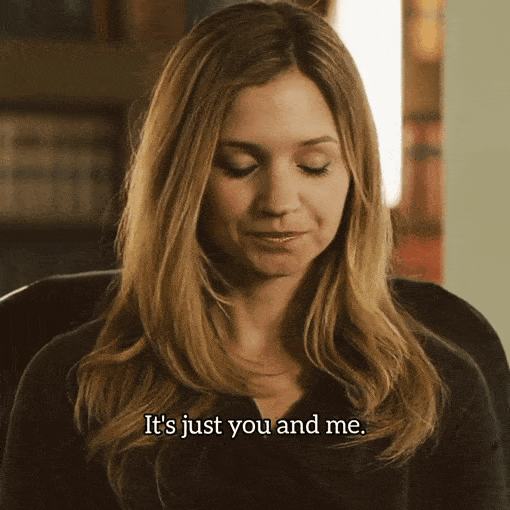


Bonus:


#i love them#this was such a emotional episode#i love it yet i hate it#Jenny being in love#Jessica being IMPRESSED#Rachel being JEALOUS#mike being ADORABLE#mike and jenny#jenny#jenny griffith#mike ross#patrick j adams#venessa ray#gina torres#meghan markle#suits official#suitsedit#suits cast#suits usa#suits#edits#season 1#play the man#mock trial#harvey specter#harvey×mike#marvey#harvey and mike
112 notes
·
View notes
Text
i feel so bad for jenny, she deserved so much better
0 notes
Photo
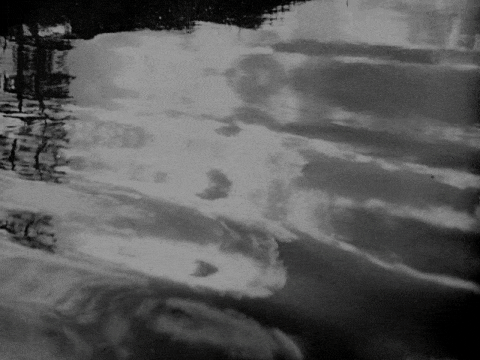
Painted Boats (Charles Crichton, 1945)
#painted boats#charles crichton#gif#1945#jenny laird#robert griffiths#british cinema#British film#british movies
11 notes
·
View notes
Text

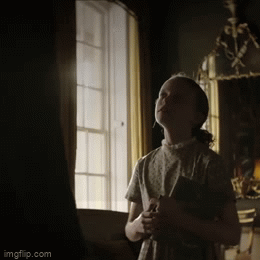


Agatha Christie's CROOKED HOUSE
Gilles Paquet-Brenner (2017)
Manor Murder Mystery
#Crooked House#Agatha Christie#detective stories#Gilles Paquet-Brenner#Glenn Close#Terence Stamp#Max Irons#Stefanie Martini#Julian Sands#Honor Kneafsey#Christian McKay#Amanda Abbington#Gillian Anderson#Christina Hendricks#Preston Nyman#John Heffernan#Jenny Galloway#David Kirkbride#Tina Gray#Roger Ashton-Griffiths#David Cann#Jacob Fortune-Lloyd#Andrew Karras
29 notes
·
View notes
Photo
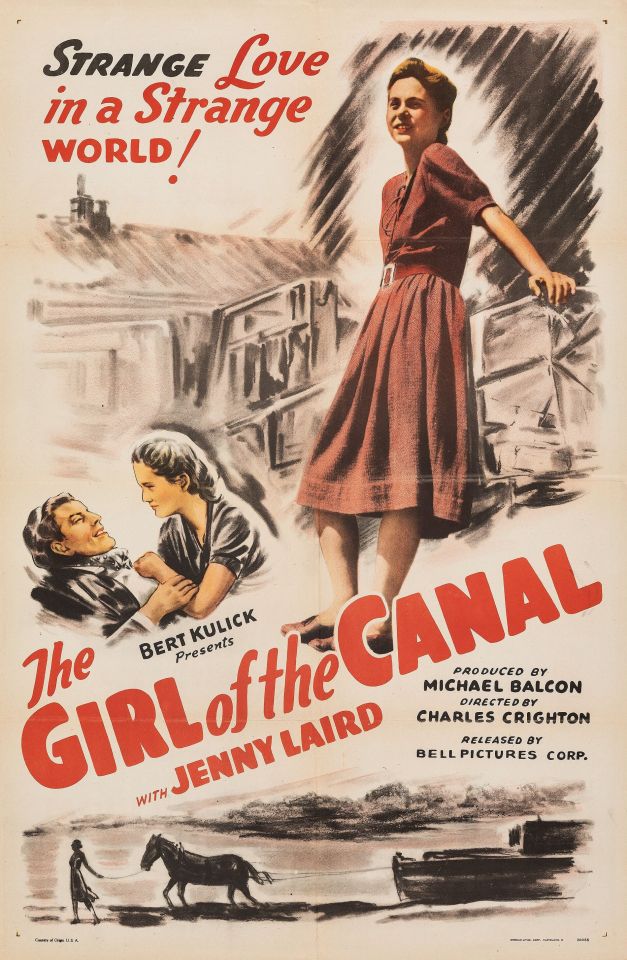
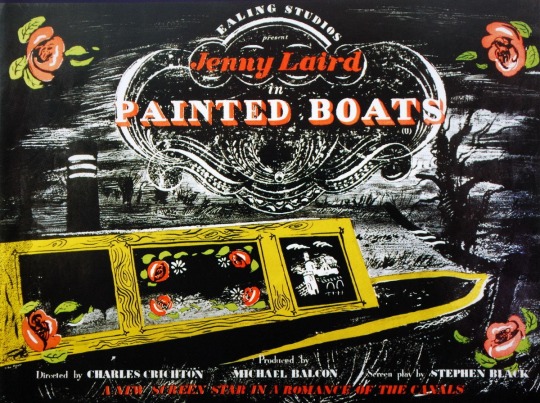

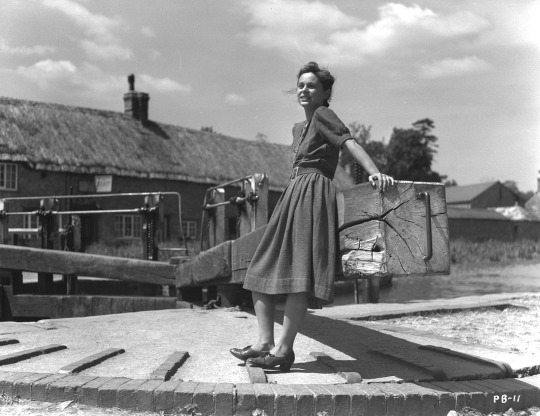
Painted Boats (The Girl of the Canal) (1945) Charles Crichton
August 6th 2022
#painted boats#the girl of the canal#1945#charles crichton#jenny laird#robert griffiths#may hallatt#harry fowler#bill blewitt#madoline thomas#megs jenkins#james mckechnie#louis macneice#ealing
9 notes
·
View notes
Text
Cry-Baby (1990)
Cry-Baby by #JohnWaters starring #JohnnyDepp and #AmyLocane, "doesn't have the heart that makes Hairspray such a treat"
JOHN WATERS
Bil’s rating (out of 5): BB
USA, 1990. Universal Pictures, Imagine Entertainment. Screenplay by John Waters. Cinematography by Dave Insley. Produced by Rachel Talalay. Music by Patrick Williams. Production Design by Vincent Peranio. Costume Design by Van Smith. Film Editing by Janice Hampton.
The success of Hairspray took John Waters into the mainstream, thanks in no small part to…
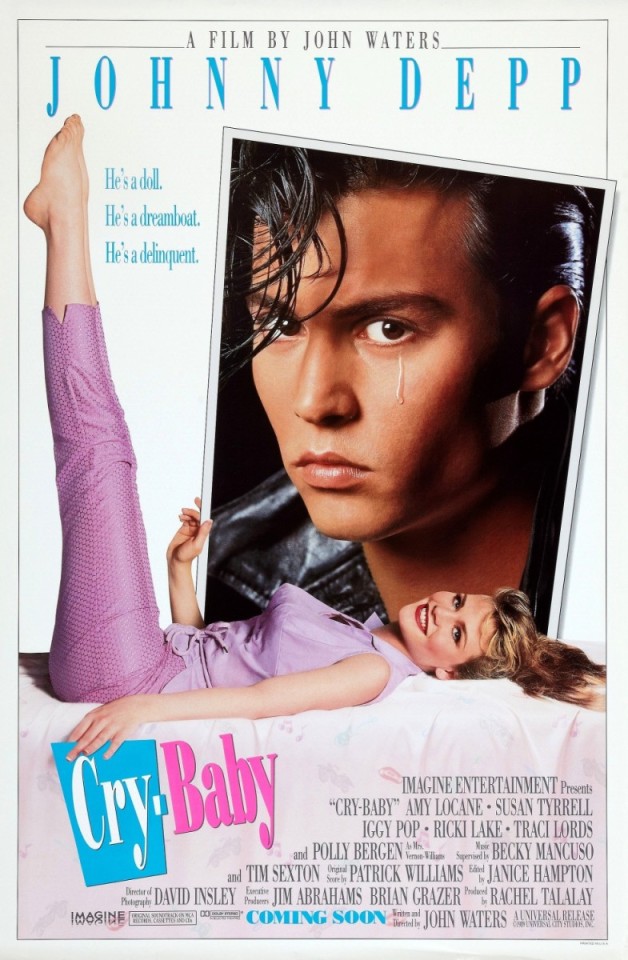
View On WordPress
#Alan J. Wendl#Amy Locane#Angie Levroney#Craig Wallace#Dan Griffith#Darren E. Burrows#Dave Insley#David Nelson#Drew Ebersole#Eric Lucas#Frank Maldonado#Holter Graham#Iggy Pop#Imagine Entertainment#Janice Hampton#Jenni Blong#Joe Dallesandro#Joey Heatherton#John Waters#Johnny Depp#Jonathan Benya#Kelly Goldberg#Kenny Curtis#Kim McGuire#Kim Webb#Kirk McEwen#Mary Vivian Pearce#Mink Stole#Nick Fleming#Patricia Hearst
3 notes
·
View notes
Photo
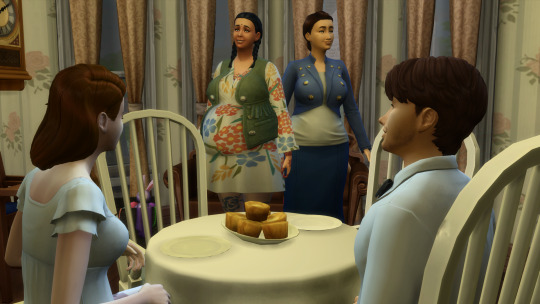



La fête a été une réussite.
#Lucy Adele Plummer#Hesther Isabel MacDonnain#James White#Watson Ferdinand Dunham#Anastasia Amabella Chen#Augusta Joceline Freeman#Fergus Harry MacDonnain#Griffith Jarvis Plummer#Jemima Clara Glyn#Jenny Florentia Plummer
0 notes
Note
do you have any arthur/guinevere/lancelot recommendations? if not, just stories where their characters were done justice and their friendship is explored and the love triangle comes to some satisfying solution.
i sure do! as always, with caveats. this list has two parts: films first and then books as i have suggestions for both! all of these movies can be watched here and the books read here.
TL;DR movies: Excalibur (1981), Camelot (1967), Knights of The Round Table (1953), Merlin and The Sword (1985), Sword of Lancelot (1963)
TL;DR books: The Birth of Galahad by Richard Hovey, Arthur Rex by Thomas Berger, Guinevere Trilogy by Persia Woolley, Guinevere by Lavinia Collins, Spear by Nicola Griffith, honorable mention to Arthurian Saga by Mary Stewart
MOVIES:
Excalibur (1981): for me it has everything. we get to see young stupid arthur and clever curious guinevere fall in love, their wedding is gorgeous, then nicholas clay my beloved lancelot throws a wrench in it as he loves and respects them both so much, and they love him. he gets to be crazy about it too like running off to the woods to beg god to take these feelings away, dreams he's fighting himself and ends up impaled<3 meanwhile arthur/guinevere leave a cup out for him even when he isn't there. the crux of it comes when guinevere is accused of cheating (which she hadn't even at this point) and arthur won't champion her because his kingship comes before husbandly duties, so lancelot fights for her honor instead. at the end, after guinevere has gone away to a convent (lancelot is a wildman with a full beard lost to them all) arthur comes to retrieve excalibur from her and his speech is so romantic about finding her in the next life. i die every time. here is my review of that movie.
Camelot (1967): i adoooore this guinevere. jenny<3 she does whatever she wants and i love that for her. the whole may day queen aspect of her is muah chef's kiss. small wonder arthur loved her immediately. this arthur gets to wear eyeliner which is a plus. lancelot almost kills arthur on meeting him and then falls at his feet on realizing it, only for guinevere to be really cold to him at first, trying to get other knights to defeat him, but ends up falling in love with him. which arthur totally knows and turns a blind eye to btw. even when pellinore brings it up in as gently as possible, arthur bites his head off, knowing he cant even entertain the rumor or else the kingdom is in danger, and he just wants his two favorite people to be happy....cries forever.
Knights of The Round Table (1953): the biggest downside to this one is that lancelot has a horrible insufferable american accent. however his celebrity worship/instant friendship with arthur is soooo good. he breaks his own sword for threatening the king and then arthur gives him his own....is that even allowed to be so adorable? anyway so lancelot had met guinevere before they were arthur's friend and wife, essentially had a charming meet cute, and went their separate ways, only to formally meet at the wedding in front of everyone....god, the eye contact could turn someone to stone. arthur is extremely sympathetic and compassionate, to the point that when he catches guinevere sulking alone on the roof with a gift from lancelot, he says "i miss him too..." bruh???? my heart?? all around delicious food.
Merlin and The Sword (1985): huge disclaimer...this movie is ugly as sin lol the only version available is ripped from a vhs tape so it might as well be a crunchy gif at this point. it was also cut down from the 3 hour tv version to 1.5 hours which is a tragedy. (i've tried emailing the studio for a rerelease to no avail...) however it has the most insane arthur/guinevere/lancelot ever i'll never be the same. arthur is played by malcom mcdowell who always brings his a game to roles. he's a bit older than guinevere, but she apparently taught him to read? he dotes on her but he's somewhat emotionally stunted which gets in the way. this guinevere is gorgeous i'm obsessed with her she has this deep sultry voice and a simple elegance that completely shatters lancelot's resolve. i get it, it would work on me. lancelot meanwhile is this incredibly lanky sometimes mute shy guy who is besties with gawain and his meet cute with guinevere involves the mingling of their blood after they are both cut on some rose thorns? hello???? they're freaks just like chrétien intended. the blood. they share bath water and fuck in a dungeon. then after guinevere is rescued from meleagant, arthur asks merlin for some sort of potion to help guinevere recover emotionally instead of like.....talking to her? he's trying but so so bad at it<3 he then takes her to bed to "treat her like a queen." IT'S ALL GREAT IT MAKES ME FERAL ARGH
Sword of Lancelot (1963): this one is fun because cornel wilde wrote it, directed it, and starred as lancelot himself!! the other fun factoid is the woman who plays guinevere is his real life wife. how stinking cute is that? so obviously their chemistry is ridiculous. but arthur is a cutie too. he's older and tends to talk down to guinevere a bit, which makes sense why she befriends lancelot in her loneliness. lancelot gets a lot of development, taking young tor under his wing, besties with gawain and lamorak and gareth. being irl married to guinevere also makes their disagreements feel very real. arthur is counseled by a ton of characters, bedievere, merlin, even mordred is here giving his two cents. so you really feel that tug of war pulling the throuple apart. it hurts.
BOOKS:
The Birth of Galahad by Richard Hovey: this play is wiiiiiild but the take away here is that guinevere is the mother of galahad. like what a twist. meanwhile all the men are away fighting rome so you get this tragic back and forth switching of perspective between lancelot and arthur missing guinevere (plus galehaut is here as counsel which really kicks this up a notch) then it cuts to guinevere with a new baby and tormented by the prospect of whether to write to rome with the news but afraid it will cause an upset where she cant be.....hovey you mad lad you've done it again.
Arthur Rex by Thomas Berger: i hate i keep having to recommend this bigoted book but damn it this arthur/guinevere/lancelot are so good. why are they sooo goood???? this arthur is compelling since he loses his virginity to morgause and is forever messed up after that, so he struggles to connect with guinevere in the way she needs, not really understanding her even though he bends over backwards to please her. meanwhile there isnt a word for what she and lancelot have here they need to be studied under a microscope so history doesn't repeat itself they're so twisted it's wild i can't look away. and the friendship between arthur and lancelot is so powerful and enduring that even at the end while joyous garde is under siege, arthur sends in kay with food the moment he hears their stores are low, and has him serve them like old times. he doesnt want it to be the way it is....sick and twisted narrative choices.
Guinevere Trilogy by Persia Woolley: i admit this isn't my favorite guinevere, but credit where it's due, she's a complex and fully realized character. through her we come to understand both arthur and lancelot as deeply damaged men, who had their emotional states devastated by the fall out of sexual abuse, and how that impacts their relationship with her (and their sons, mordred and galahad, who likewise suffer as a result of their fathers' emotional states). as a celtic queen, guinevere has every right to take a lover if she so desires, and arthur is not ignorant of his own failings as a husband, but the tragedy plays out anyway as the orkney brothers are there to wreak havoc on the place as usual. (you might find that this has a movie adaptation Guinevere (1994) don't watch it, trust me, it's not even fun bad, just cursed.)
Guinevere by Lavinia Collins: this is technically part of a series so you'll also get a lot of arthur and lancelot in the other three (Igraine, Morgawse, Morgan) but for the sake of this list, the guinevere one will suffice. anyway what i like about this is the strong contrast in relationships with both men. lancelot is bisexual and guinevere is the first woman he ever sleeps with (but not the last...) so theyre very tender and sweet together meanwhile arthur sired mordred before marrying her he's overall more adventurous while keeping entirely faithful to her for the rest of his life......there is a threesome in this but ironically its lancelot/guinevere/kay and not arthur but you know what? he deserves a win. this still goes on the list.
Spear by Nicola Griffith: this is perceval pov so the focus on arthur/guinevere/lancelot is minimal, but its delicious. arthur is kinda cold and mean here (falling back on the celtic "bear" thing, same as woolley does) but its revealed that he, lancelot, and guinevere are in a throuple, the characterization of lancelot's shy explanation of this was so good, and he goes on the grail quest to try and heal guinevere's womb so she can have their children, as it's a point of tension that mordred and galahad both exist, but guinevere wants to have children with arthur and lancelot. there's literally a part she faints and they both carry her off to bed like....they dont even pretend its any other way. no homophobia or slut shaming or anything like that in this book which is a huge plus. palate cleanser after arthur rex lol
Arthurian Saga by Mary Stewart: this is more of an honorable mention, as the first three books are merlin pov and the fourth is mordred. but book two (the hollow hills) has arthur raised alongside bedwyr (who is lancelot in all but name, son of ban, eventual lover of guinevere etc) they are the best of friends its adorable, bedwyr gave him his dog cabal, which is cute on its own, then fast forward to mordred pov (the wicked day) decades later and arthur is picking out a new puppy and names that one cabal too, its like this long homoromantic ritual that every dog descended from the first calls back to his original gift....im pulling my hair out. guinevere here is underdeveloped at best, as merlin doesnt really know her well and mordred's perspective on her is that shes (respectfully) hot lmao but worth mentioning as mary stewart is the goat, highly recommend her books.
and that's the list. hope that gives you some stuff to chew over!
#arthurian legend#arthurian legends#arthuriana#arthurian mythology#king arthur#queen guinevere#sir lancelot#ask#anonymous
55 notes
·
View notes
Text
jenny but it’s not the mountain goats playlist for @jennyfromthebes <3
speed of the sound of loneliness / nancy griffith
phone calls and emails / tyler childers
paul revere / noah kahan
last of the american girls / green day
shelter from the storm / bob dylan
wide open spaces / the chicks
taking the heat / joy oladokun
unconditional love / against me!
condition 11:11 / defiance, ohio
imminent bail out / buckcherry
farewell wanderlust / the amazing devil
jenny was a friend of mine / the killers
steppin’ out / electric light orchestra
desperado / eagles
stupid kid / alkaline trio
jet pack blues / fall out boy
(i could probably think of more lol but i hope this is good!)
14 notes
·
View notes
Text
I'm Done. I'm Free. It has been Made
All 1 Submissions, as well as if they have propaganda
Flowey: Yes Propaganda
Dr Carmilla: No Propaganda
Hua Cheng: No
Xander Harris: Yes
Azula: No
Fuuta Kajiyama: Yes
Anders (Dragon Age): Yes
Saix (Kingdom Hearts): Yes
Rennala (Elden Ring): No
Apple White: No
Kyubey (Madoka Magica): Yes
Mathematics: Yes
Gon Freeces: Yes
Makiel (Cradle): Yes
The Emperor: Yes
Bassira Hussain (TMA): No
Kris (Deltarune): Yes
Evan Hansen: Yes
Haruko (FLCL): Yes
Princess Bubblegum: Yes
Doug Eiffel: Yes
Yuzuriha Kotoko: No
Anemone (Wings of Fire): Yes
Theresa Agnes: Yes
Liv Chenka: yes
Anakin Skywalker: Yes
R.M. Renfield (Dracula): Yes
Papa Loui: Yes
Rory Gilmore: Yes
Himemiya Anthy:No
Every Fire Emblem: Yes
Jin Guangyao: No
Raven Branwen: Yes
Caithe (Guild Wars): No
Georgina Barker (TMA): Yes
Scourge the Hedgehog: No
Susie (Kirby): No
Morro (Ninjago): Yes
Viren (The Dragon Prince): No
Dark Pit: Yes
Shadow the Hedgehog: No
Michael with the Doors (TMA): Yes
Professor Ozpin: Yes
Annie Edison: No
Siri Keeton: Yes
Mihuel O’Hara: Yes
Talia Al Ghul: Yes
Yukio Okumura: Yes
Guillermo de la Cruz: No
Jenny (Forest Gump): Yes
Gamzee Makara: Yes
Wen Kexing: No
Griffith (berserk): Yes
Dimitri Alexandre Blaiddyd: Yes
Hal 9000 (2001 A Space Odyssey): Yes
Hiiragi Mahiru: Yes
Bobbi Morse: Yes
Rika Kim: Yes
Amanda Waller: Yes
Larisa Weems: Yes
Vincent Smith: Yes
Rammatra (Overwatch) Yes
Itachi Uchihara: Yes
Wanda Maximoff: Yes
Lucretia (TAZ):Yes
Angel Dust: Yes
Crowley (Supernatural): No
Makoto Hamamaya: Yes
Roy Mustang: Yes
Prowl (Transformers): No
Peter Hale: No
Harry Osborn: No
Octavia Blake: Yes
Melissa (Hatchetfield): Yes
Ainosuke Shindo/ADAM: Yes
Zuko (ATLA): No
Eichi Otori: No
Aesop Carl: Yes
Hosea Mathews: Yes
Arataka Reigan: No
Martin Blackwood: Yes
Frankensteins Monster: Yes
Alicent Hightower: Yes
Pyro (TF2): Yes
Maglor (Silmarillion): No
Providence (Risk of Rain): Yes
James Sunderland: No
Sorin Markov: Yes
Haruka Sakurai: Yes
Winn Adami: Yes
Regina George: No
Trucy Wright: Yes
Arlong the Saw: Yes
Sunny (OMORI): Yes
Kang Yohan: Yes
13 notes
·
View notes
Text
A BRIEF DEVILMAN CRYBABY RANT
What on Earth is Devilman Crybaby?
I watched Devilman Crybaby, the 2018 anime, because I heard that it was like a mix between Neon Genesis Evangelion and Berserk.
That’s true, in terms of imagery, symbolism, structure. Even the soundtrack of Devilman is similar to NGE
Devilman Crybaby is also similar to Dune in that both series ask the question “What makes us human?” Answer that question very quickly, and then proceed to spend the rest of the series adding additional footnotes to this thesis.
With Dune, the answer is extraordinarily complicated. According to Devilman Crybaby, it our ability to cry.
Devilman’s themes are not really subtle or complex. In fact, unlike the other three stories I mentioned, it’s kind of stupid, and that’s what makes it wonderful.
Beginning the first episode, the opening theme song and first scene made me think I was in a for a surreal, poetic experience. It’s a fantastic first scene, introducing us to the characters of Akira and Ryo and setting up the theme of kindness all the while having a wonderful atmosphere.
Then, we suddenly cut to a high-school track practice, and the next few scenes are a blur of horniness, weird jokes, and some of the most inhuman dialogue I’ve ever seen.
A lot of the scenes are also so nonsensically paced, either being way to slow or way to quick, ending either abruptly or a bit after they should have ended. There’s also so many scenes where the actions of character’s straight up make no sense, like that entire scene at the peir.
However, the end of the episode…it sure was something. It sees some pretty awesome body horror and an absolutely brutal fight.
A complaint I do have is the animation. It’s…not good. The character designs themselves are often enjoyable, but the drawing style is just kind of ugly. Ryo’s a good example of this. His design as this thin, regal looking, blonde, pale person who always dresses in white does a great job at telling you what he is as a character, even if it’s basically just the design of Griffith from Berserk. However, he’s drawn with these weirdly shaped eyebrows, and his haircut just looks bizarre. This seems really nitpicky, but it’s important.
A lot of the monsters also seem like they could be a lot cooler if the animation was a bit more detailed.
Not only that, but you can tell that this show was very low budget with all these instances of re-used animation and many obvious cost-cutting measures. There are multiple scenes where we barely see the characters talk and instead just see looping shots of the environment around them.
Oh, also this first episode is super horny. It’s close to being porn sometimes, and I’m not joking or exaggerating. I’m fine with art being horny, but there’s a certain point where it just becomes indulgent. It doesn’t help that, 90% of the time, it’s women being sexualized.
I’m not even going to get into the way the character of Miki is treated.
The episodes after the first one…fine, I guess.
The problem is that this story jumps the gun on its weirdness and darkness, ending the first episode with something very weird and dark. As such, the next few episodes, which are remarkably less insane, just saw me waiting for things to go crazy again.
Another problem is that the series is ridiculously quickly paced. I really liked the main characters of Ryo and Akira, and I liked their dynamic, but they barely had any time together. It doesn’t help that a lot of time is being spent with subplots.
This quick pace continues to hound the series until the very end.
People in this series keep talking about rising crime rates and how the world is going to heck, but this is never elaborated upon.
Characters like the beatboxing gang, Miki’s family, Miko, Psycho Jenny, Akira’s parents, the gay guy, Silene and her friend, and many others, go underdeveloped.
Stuff like government conspiracies, the tattoo gang, the demons having a secret plan, christianity, sexuality, and the meta aspect of the in-universe Tv show, are all underdeveloped.
Only a few plot elements feel completely finished, like running. The use of the relay race at the end is pretty creative, with Ryo not taking the baton, serving as a metaphor for his apathy.
Relay running is used similarly in many other placed. It symbolizes how the gay guy and Miko are being individualists, and Akira being the anchor shows how others depend on him. It ads a bite to Miki’s death. Blah blah blah.
The PE coach was also a brilliant use of set up and pay off carried out over the episodes.
The idea of hands grabbing others is an image used repeatedly throughout.
Miki is also a really nice character, and while I was annoyed at how little agency she had for most of the show, I appreciate how she did help save Akira in that one scene. Unfortunately, that was it, and I feel like we barely knew her as a character.
The tv series has a racism metaphor that I would rank 4/10. It shows how racism against devilmen is bad, but it also claims that demons are ontologically evil and it’s okay to kill them all. There are suggestions that they do have hearts, but this is never elaborated upon.
We see a running pattern here, the show not having enough time. As a result, its themes are half-baked and overly simplistic. It talks about how we should get along, and how humanity are the real monsters, and how individualism is bad, and empathy is nice, and how imperialism is bad, and all that jazz, but it never tied these ideas together.
Compare this to Eva, where it feels like End of Evangelion managed to touch on every idea the show had set up. That’s probably because Eva was twice as long.
It also doesn’t help that this show is almost laughably unsubtle. Miki’s “social media” post that saves people is so on-the-nose.
There’s also scenes that are just weird, like that one scene with Bonito flakes. Also, what was the deal with the kid looking up porn. Also, Donald Trump canonically exists in it. Also, who were the people shooting at the rainforest people?
I’m sure there’s an explanation, but that’s not important. It’s fine if a show is ambiguous, but this doesn’t feel purposeful so much as it feels sloppy.
It feels like the show doesn’t know what it wants to be about, with their being two or three episodes were are titular crybaby barely appears. That’s not great.
I don’t hate all of these subplots, it’s just that none of them go anywhere. For instance, we watch this romance bloom between Miko and Frizzy Haired Guy for two episodes, and I will admit, I like Frizzy Haired Guy. I was rooting for him. Then, he gets killed off and is barely mentioned again. All that buildup was for nothing.
I suppose the story is trying to purposefully be unsatisfying, something both Eva and Berserk do, but when you do that, you need to have a reason. They could have made the scene where Frizzy Haired Guy die really tragic, but they instead make it all flashy and confusing so they can have us wonder if he’s maybe still alive for a bit.
Also, we had this whole episode introducing us to gay dude, and then he randomly goes evil and gets killed off in the last episode. So long, character development!
Comparing this show to Eva again, the ending is almost amazing. The imagery sounds awesome on paper, but the animation and character designs are so minimal. It also feels like Akira stopped growing as a character after the first six episodes. He feels almost removed from the destruction, as it’s all happening because of someone else.
I could also nitpick that entire last episode to hell for the thousand different moments that are written weirdly, like that one scene where Ryo doesn’t notice that Akira’s bottom half has been removed. Also, that ending shot was way to one the nose in looking like End of Evangelion. I know the Devilman manga came before Eva, but I don’t care. Why is the sea even red?
Despite all my complaining, I still like this show. The characters are fun, even if they really aren’t that complex (especially all the characters that aren’t Ryo and Akira). The world-building is imaginative and awe-inspiring, many of the action scenes are pretty cool, and there are moments when the minimal animation does work.
Also, sometimes it’s nice to have a story that’s willing to be as bleak as this one, and as weird as this one.
To be honest, I feel like it could be weirder. I generally understood what was going on most of the time. In fact, the most confusing scenes were from the ordinary slice-of-life segments, like when that family had that giant The Last Supper painting.
I also think an idea which is carried out to its fullest is the idea of apathy. It’s the source of most of the conflict between Ryo and Akira. The ending sees Ryo destroying everything, including the one person he cares about, in his pursuits. It’s a tragic irony, I guess.
I feel like it would hit more if we had more time with these characters. What was Ryo’s reaction to learning that he was Satan and that everything he knew was a lie? What was the nature of his relationship with Psycho Jenny? What were Ryo’s actual motivations beyond “destroying humanity”.
If Ryo’s goals were more fleshed out, than the irony of him accomplishing his goals at the cost of the one thing that truly mattered to him would hit much harder.
This is definitely a story which you’re supposed to feel, not understand, but I don’t think I felt everything the show wanted me to feel.
Another victim of the quick pacing is a lack of atmosphere. Now, the show does have a few sequences with some fantastic, otherworldly atmosphere, like the beginning. However, there are many times when it would be nice if the story could slow down a bit and let us enjoy the imagery.
The lack of atmosphere in the final episode is also a result of how needlessly complex the show can be sometimes. A lot of lore is thrown into our face in that episode, as well as a lot of character backstory and insight. A lot also happens in that 25 minutes. It would be nice if we got time to digest what was happening.
I feel like I need to stop, because it seems like I dislike this show, but, there were times when I was on its wavelength.
There is some beautiful and horrific imagery in here. I love Satan’s design, and I feel like it actually works with the minimalist artsyle.
A lot of the scenes showing nuclear war in the last episode were pretty breathtaking, as the show is pretty great at showing scale and grandiosity. The use of filters really helps to sell the effect. The flashbacks to Ryo and Akira’s childhood also had an awesome juxtaposition, with these brightly colored childhood memories that use these long shots clashing with the dark and frantically edited present.
There are also many scenes of brutality earlier in the series that are legitimately pretty shocking, mainly the massacre at the track meet.
This is a series that has a lot going for it, but it ultimately stumbles at the finish line, ending up seeming more like an ant by the feet of the stories that the manga inspired.
However, they say the book is always better, so I’ll be sure to check it out.
4 notes
·
View notes
Text
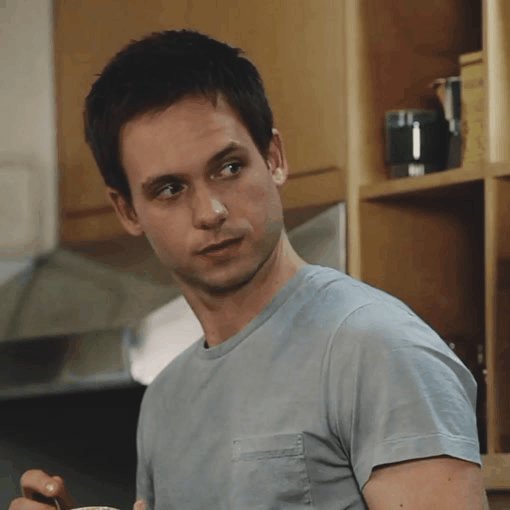
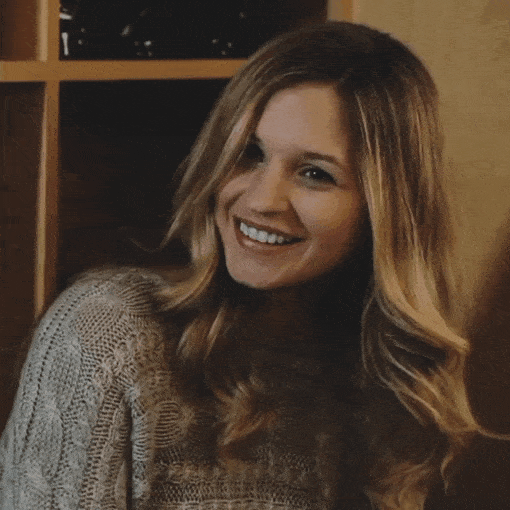

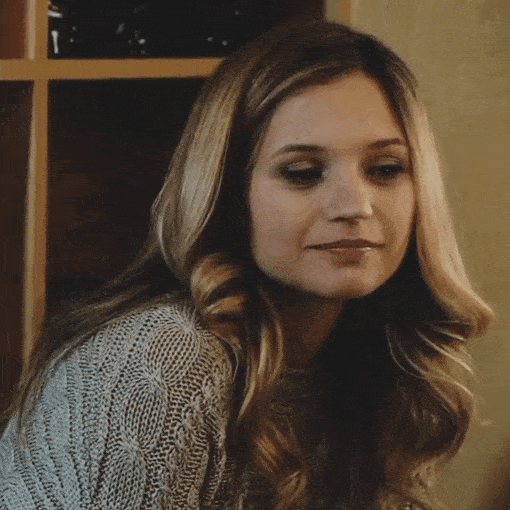
#mike and Jenny#i loved them#jenny deserved way better#i liked her more than rachel#i wish they were the endgame#suits official#suitsedit#edits#suits#suits usa#mike ross#suit#suits cast#jenny#patrick j adams#venessa ray#jenny Griffith#tvshow#tvshowedit#they were young and cute#harriet specter#harvey×mike#harvey#harvey and mike#marvey#harvey specter#cute
39 notes
·
View notes
Text

The Birth of a Nation (D.W. Griffith, 1915)
Cast: Lillian Gish, Mae Marsh, Henry B. Walthall, Miriam Cooper, Mary Alden, Ralph Lewis, George Siegmann, Walter Long, Robert Harron, Wallace Reid, Joseph Henabery, Elmer Clifton, Josephine Crowell, Spottiswoode Aitken, George Beranger, Maxfield Stanley, Jennie Lee, Donald Crisp, Howard Gaye, Raoul Walsh. Screenplay: Thomas Dixon Jr., D.W. Griffith, Frank E. Woods, based on a novel and play by Dixon. Cinematography: G.W. Bitzer. Film editing: D.W. Griffith, Joseph Henabery, James Smith, Rose Smith, Raoul Walsh.
Is it an overstatement to say that the stench of The Birth of a Nation is more than a subset of the blight cast on American society and politics by slavery? Because Griffith's film informed an entire industry, not only with its undeniable influence on the language and grammar of film, but also in the tendency to valorize bigness above intimacy, action over thought, sensation over understanding that has characterized the mainstream of American movies. It was the first blockbuster. It was both intelligently crafted and abominably stupid. It just might be the most pernicious work of art ever made, a magnificent nauseating lie. Its portrait of Reconstruction warped the teaching of history for generations, and although the resurgence of the Ku Klux Klan that it inspired has waned, we still find ourselves swatting down the heirs of the Klan like the Proud Boys, the Promise Keepers, and others who would defend what one of Griffith's title cards calls the "Aryan birthright." Even the reaction against The Birth of a Nation has its dark side: The recognition of the power of movies that followed its release eventually produced calls for censorship that would hamstring the medium. On the right, a suspicion that movies had the power to promote a leftist agenda led to the blacklist era, in which communists, not racists, were the target. And what is the crusade by some against "wokeness" in the media but another call for the kind of ideological purity that would stifle art? So to call The Birth of a Nation an essential film is an understatement. Looking at it as a demonstration of the ability of cinema to profoundly affect society could reveal it to be the most important movie ever made.
3 notes
·
View notes
Quote
Psyco (1960) Alfred Hitchcock
Il mago di Oz (1939) Victor Fleming
Il padrino (1972) Francis Ford Coppola
Quarto potere (1941) Orson Welles
Pulp Fiction (1994) Quentin Tarantino
I sette samurai (1954) Akira Kurosawa
2001: Odissea nello spazio (1968) Stanley Kubrick
La vita è meravigliosa (1946) Frank Capra
Eva contro Eva (1951) Joseph L. Mankiewicz
Salvate il soldato Ryan (1998) Steven Spielberg
Cantando sotto la pioggia (1952) Stanley Donen e Gene Kelly
Quei bravi ragazzi (1990) Martin Scorsese
La regola del gioco (1939) Jean Renoir
Fa' la cosa giusta (1989) Spike Lee
Aurora (1927) Friedrich Wilhelm Murnau
Casablanca (1942) Michael Curtiz
Nashville (1975) Robert Altman
Persona (1966) Ingmar Bergman
Il padrino - Parte II (1974) Francis Ford Coppola
Velluto Blu (1986) David Lynch
Via col vento (1939) Victor Fleming
Chinatown (1974) Roman Polanski
L'appartamento (1960) Billy Wilder
Tokyo Story (1953) Yasujirō Ozu
Susanna! (1938) Howard Hawks
I 400 colpi (1959) François Truffaut
Gangster Story (1967) Arthur Penn
Luci della città (1931) Charlie Chaplin
La fiamma del peccato (1944) Billy Wilder
L'impero colpisce ancora (1980) Irvin Kershner
Quinto potere (1976) Sidney Lumet
La donna che visse due volte (1958) Alfred Hitchcock
8 1/2 (1963) Federico Fellini
Ombre rosse (1939) John Ford
Il silenzio degli innocenti (1991) Jonathan Demme
Fronte del porto (1954) Elia Kazan
Io e Annie (1977) Woody Allen
Lawrence d'Arabia (1962) David Lean
A qualcuno piace caldo (1959) Billy Wilder
Fargo (1996) Joel e Ethan Coen
Il mucchio selvaggio (1969) Sam Peckinpah
Moonlight (2016) Barry Jenkins
Shoah (1985) Claude Lanzmann
L’avventura (1960) Michelangelo Antonioni
Titanic (1997) James Cameron
Notorious - L'amante perduta (1946) Alfred Hitchcock
Mean Streets (1973) Martin Scorsese
Lezioni di Piano (1993) Jane Campion
Non aprite quella porta (1974) Tobe Hooper
Fino all'ultimo respiro (1960) Jean-Luc Godard
Apocalypse Now (1979) Francis Ford Coppola
Come vinsi la guerra (1926) Buster Keaton
In the Mood for Love (2000) Wong Kar-wai
Interceptor - Il guerriero della strada (1981) George Miller
Il lamento sul sentiero (1955) Satyajit Ray
Rosemary's Baby (1968) Roman Polanski
I segreti di Brokeback Mountain (2005) Ang Lee
E.T. - L'extraterrestre (1982) Steven Spielberg
Senza tetto né legge (1985) Agnès Varda
Moulin Rouge! (2001) Buz Luhrmann
La passione di Giovanna D'Arco (1928) Carl Theodor Dreyer
La vita è un sogno (1993) Richard Linklater
Bambi (1942) David Hand
Carrie - Lo sguardo di Satana (1976) Brian De Palma
Un condannato a morte è fuggito (1956) Robert Bresson
Parigi brucia (1990) Jennie Livingston
Ladri di biciclette (1948) Vittorio De Sica
King Kong (1933) Merian C. Cooper e Ernest B. Schoedsack
Beau Travail (1999) Claire Denis
12 anni schiavo (2013) Steve McQueen
Il matrimonio del mio migliore amico (1997) P. J. Hogan
Le onde del destino (1996) Lars von Trier
Intolerance (1916) D.W. Griffith
Il mio vicino Totoro (1988) Hayao Miyazaki
Boogie Nights (1997) Paul Thomas Anderson
The Tree of Life (2011) Terrence Malick
Agente 007 - Missione Goldfinger (1964) Guy Hamilton
Jeanne Dielman (1975) Chantal Akerman
Sognando Broadway (1966) Christopher Guest
Pixote - La legge del più debole (1981) Héctor Babenco
Il cavaliere oscuro (2008) Christopher Nolan
Parasite (2019) Bong Joon-ho
Kramer contro Kramer (1979) Robert Benton
Il labirinto del fauno (2006) Guillermo del Toro
Assassini nati - Natural Born Killers (1994) Oliver Stone
Close Up (1990) Abbas Kiarostami
Tutti insieme appassionatamente (1965) Robert Wise
Malcolm X (1992) Spike Lee
Bella di giorno (1967) Luis Buñuel
The Shining (1980) Stanley Kubrick
Scene da un matrimonio (1974) Ingmar Bergman
Pink Flamingos (1972) John Waters
Frank Costello faccia d'angelo (1967) Jean-Pierre Melville
Le amiche della sposa (2011) Paul Feig
Toy Story (1995) John Lasseter
Tutti per uno (1964) Richard Lester
Alien (1979) Ridley Scott
Donne sull'orlo di una crisi di nervi (1988) Pedro Almodóvar
La parola ai giurati (1957) Sidney Lumet
Il laureato (1967) Mike Nichols
Dall’articolo "I 100 migliori film della Storia del Cinema secondo Variety: 1° Psyco, 5° Pulp Fiction, 33° 8 1/2, 45° Titanic" di Antonio Bracco
19 notes
·
View notes